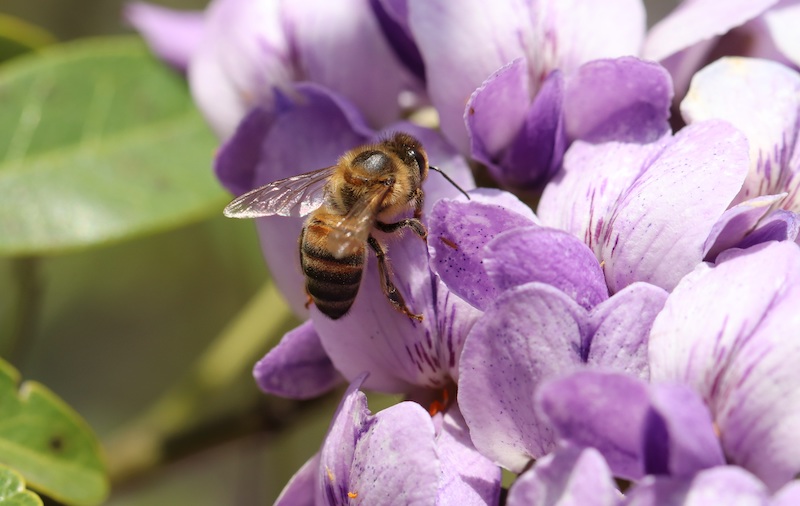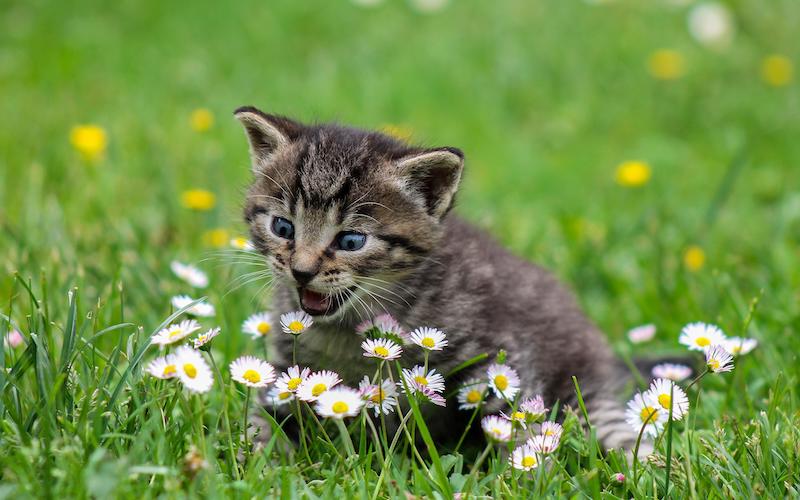The short answer is a YES. All parts of this broadleaf evergreen can be deadly to humans and animals. Bark, flowers, seeds, leaves, roots, stems, and sap are all poisonous. Even the honey made from bees that forage exclusively on Mountain Laurel is toxic. It is called ‘Mad Honey’. The principal toxins are andromedotoxin and arbutin. Even though ingesting Mountain Laurel is dangerous, contact dermatitis is rarely an issue. Pruning and working with Mountain Laurel is safe, although people with sensitive skin may want to wear gloves and long sleeves when working around this shrub.

Are Mountain Laurel Poisonous to Children?
Children of all ages should be kept away from Mountain Laurel where it is growing and from piles of pruned branches. Ingesting small amounts of any parts of this plant could cause severe illness and possibly death.

Are Mountain Laurel Poisonous to Dogs?
Yes, all parts of Mountain Laurel are poisonous to dogs. Depending on the amount of plant ingested, look for the following symptoms: excessive drooling, loss of appetite, vomiting, muscle spasms, tremors, weakness, diarrhea, paralysis, coma, reverse dilation of pupils (pinpoint pupils), and death. Immediate treatment by a veterinarian is required. Dogs will be more likely to ingest the leaves. Bringing any parts of the plant that have been eaten or can be used to positively identify the plant will be helpful for the veterinarian to make a correct treatment plan.
Are Mountain Laurel Poisonous to Cats?
Yes, all parts of Mountain Laurel are poisonous to cats. Depending on the amount of plant ingested, look for the symptoms: excessive drooling, loss of appetite, vomiting, muscle spasms, tremors, weakness, diarrhea, paralysis, coma, reverse dilation of pupils (pinpoint pupils), and death. Immediate treatment by a veterinarian is required. Cats will be more likely to ingest the leaves. Bringing any parts of the plant that have been eaten or can be used to positively identify the plant will be helpful for the veterinarian to determine the treatment plan.

Are Mountain Laurel Poisonous to Other Animals?
Yes, all domesticated animals, including farm livestock, are in danger of severe illness or death if any part of Mountain Laurel is eaten. Wild animals have a tendency to naturally stay away from Mountain Laurel. Deer will try to browse the leaves, but immediately leave it alone due to toxins causing a burning sensation in their mouth. The burning sensation is caused by glycosides that are similar to turpentine.
Symptoms of Mountain Laurel Poisoning in Humans
Always check with your doctor or veterinarian if you suspect Mountain Laurel poisoning. According to Colorado State University, symptoms of Mountain Laurel poisoning include:
- uncontrolled salivation
- vomiting
- anorexia
- abdominal pain
- muscle tremors
- increased heart rate
- slowed heart rate
- increased respiratory rate
- inhalation pneumonia
- seizures
- convulsions
- miscarriage in pregnant women or animals
‘Mad Honey’ disease occurs in people who eat quantities of honey made by bees who forage Mountain Laurel and Rhododendron nectar. Affected people develop excess salivation, bradycardia, severe hypotension (low blood pressure), muscle weakness, convulsions and coma in severe cases.
Preventing Mountain Laurel Poisoning
Labeling plants with both the regional common name and the scientific Latin name is useful for determining the correct course of treatment or if any treatment is necessary. Plant Mountain Laurel in areas away from where children and pets play on a regular basis. The back of a garden or a wildlife area may be more appropriate for planting Mountain Laurel instead of next to a driveway or a sidewalk. Do not allow children to use the flowers or seeds as make-believe play items. Dispose of prunings and deadheaded flowers as quickly as possible so that children and pets do not have access to the plant parts. Do not burn any parts of a poisonous plant. The smoke could cause serious irritation of the lungs, eyes or skin.
Pet Poison Helpline
If something were to happen to your furry friend, and you suspect that they are suffering from Mountain Laurel poisoning, there is a poison control hotline to call for 24/7 vet advice. It is called the Pet Poison Hotline and their phone number is (855) 764-7661.
Sources:
"Kalmia Latifolia." Penn State College of Agricultural Sciences, The North Carolina Extension Gardener Plant Toolbox. plants.ces.ncsu.edu
"Laurel, mountain laurel, calico bush." Colorado State University Guide to Poisonous Plants. poisonousplants.cvmbs.colostate.edu
 |
Author Robbin Small - Published 6-29-2022 |
